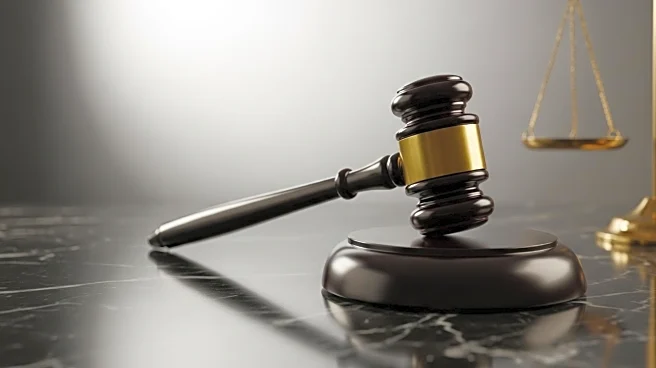What is the story about?
What's Happening?
In Washington, D.C., over 50 individuals have faced federal charges since President Trump's emergency law-and-order surge began. However, prosecutors have dropped at least 11 cases, raising concerns about the effectiveness of the surge strategy. U.S. Magistrate Judge Matthew Sharbaugh has criticized the high rate of case dismissals, questioning whether prosecutors are adequately investigating before charging. Grand juries have also refused to indict in several cases, indicating skepticism about the evidence. The surge, intended to make streets safer, has led to numerous arrests but faces judicial scrutiny over its execution and impact.
Why It's Important?
The high rate of case dismissals and judicial pushback highlight potential flaws in the surge strategy, questioning its effectiveness and resource allocation. This situation underscores the importance of thorough legal processes and the potential consequences of hastily implemented law enforcement measures. The judicial system's response may influence public trust in government actions and impact future policy decisions regarding crime prevention and law enforcement strategies. The controversy could also affect the administration's credibility and its approach to handling crime in urban areas.
What's Next?
Further judicial scrutiny and potential hearings could lead to changes in how surge-related cases are handled, possibly resulting in more stringent evidence requirements before charges are filed. The administration may need to reassess its strategy to ensure legal compliance and effectiveness. Stakeholders, including legal experts and civil rights groups, may advocate for reforms to prevent similar issues in future law enforcement initiatives.















